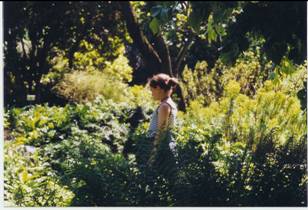 |
|
|||||||||||||||||
NATURE AND CULTURE
Biological Thought: A Cross Cultural View

This project is directed by Dr. Sandra Waxman and Dr. Douglas Medin. The focus of the project is to discover how our notions of the natural world unfold - across development, across cultures, and across languages.
The research program explores fundamental questions, including, “What is the place of humans within the natural world?”, “What does it mean to be ‘alive’?”, and “How do children across cultures develop these concepts?”
The team has conducted research with adults and young children from communities as diverse as urban and suburban Chicago, rural Wisconsin, Menominee Indians ( Wisconsin), Tzotzil Maya ( Mexico) and Indonesians. They have discovered strong universals among these communities even in the face of striking cross-cultural and cross-linguistic variation. While our concepts of the natural world bear the imprint of the community in which we are raised and of community-wide discourse and belief systems, the most fundamental concepts of the natural world – concepts such as living thing, animal, plant and human – share profound commonalities among each of the populations studied.
Current team members include:
Northwestern University: Erin Leddon, Jennie Woodring, Trish Herrmann
American Indian Center of Chicago: Megan Bang
Menominee Reservation in Wisconsin: Karen Washinawatok, Connie Rasmussen, Brett Reiter, Marcus Grignon
Shawano, Wisconsin:
Tina Burr
This research is supported by the National Science Foundation
Questions about this project? Contact Jennie Woodring at j-woodring@northwestern.edu
To learn more about Sandra Waxman's and Doug Medin's research interests, see their web pages.
Related publications:
Anggoro, F. K., Waxman, S.R. & Medin, D.L. (2008). Naming practices and the acquisition of key biological concepts: Evidence from English and Indonesian. Psychological Science.
Waxman, S., & Medin, D. (2007). Experience and cultural models matter: Placing firm limits on anthropocentrism. Human Development. 50, 23-30.
Waxman, S.R., Medin, D.L., & Ross, N. (2007). Folkbiological reasoning from a cross-cultural developmental perspective: Early essentialist notions are shaped by cultural beliefs . Developmental Psychology. 43(2), 294-308.
Waxman, S.R., & Medin, D.L. (2007). Interpreting asymmetries of projection in children's inductive reasoning. In A. Feeney & E. Heit (Eds.), Inductive Reasoning, pp55-80. New York , NY : Cambridge University Press.
Waxman, S. R. & Medin, D. L. (2006). Core knowledge, Naming and the Acquisition of the Fundamental (Folk)biologic Concept ‘Alive’. In N. Miyake (Ed.)., Proceedings of the 5th International Conference on Cognitive Science, 53-55. Mahwah, New Jersey: Lawrence Erlbaum.
Anggoro, F.K., Waxman, S.R., & Medin, D.L. (2005). The effects of naming practices on children's understanding of living things . In B. Bara, L. Barsalou, & M. Bucciarelli (Eds) Proceedings of the Twenty-seventh Annual Meeting of the Cognitive Science Society, 139-144. Mahwah, NJ: Lawrence Erlbaum Associates.
Atran, S., Medin, D.L, & Ross, N. (2005). The Cultural Mind: Environmental Decision Making and Cultural Modeling Within and Across Populations. Psychological Review, 112(4), 744-776.
Medin, D.L & Atran, S. (2004). The Native Mind: Biological Categorization, Reasoning and Decision Making in Development Across Cultures . Psychological Review, 111( 4), 960-983.
Department of Psychology Home | Weinberg College of Arts and Sciences
Northwestern Home |
Calendar: Plan-It Purple |
Sites A-Z |
Search
Department of Psychology 2029 Sheridan Road Evanston, IL 60208-2710
Phone: 847-491-5190 Fax: 847-491-7859 E-mail: biothought@northwestern.edu
Last updated
12/06/2010
World Wide Web Disclaimer and University Policy Statements
© 2003 Northwestern University